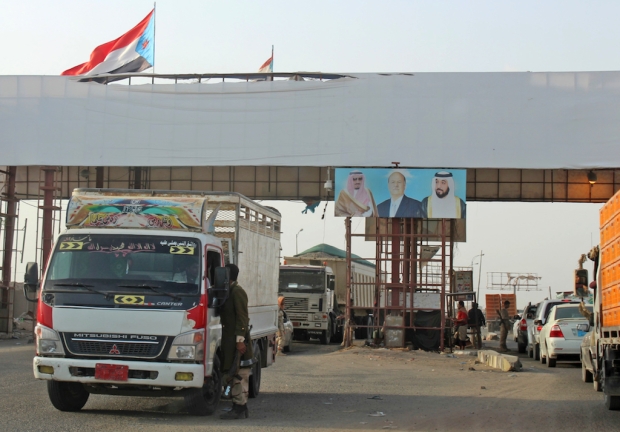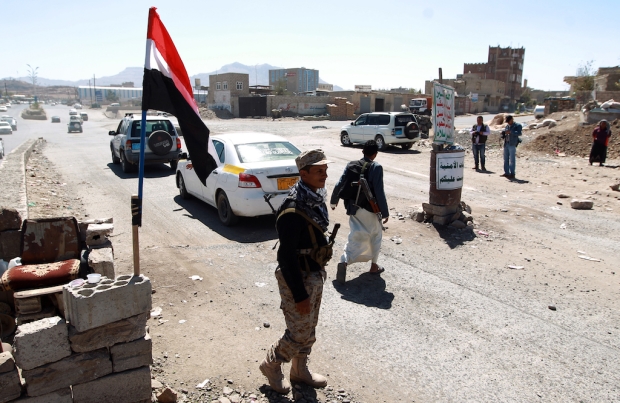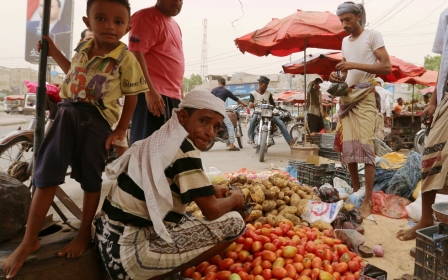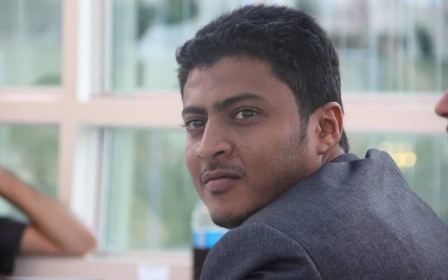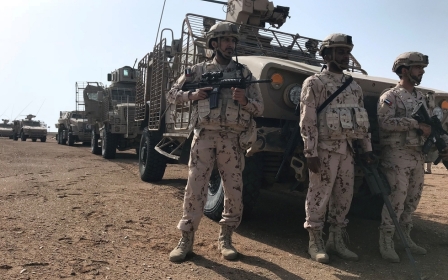Yemenis brave checkpoints and mountain roads to travel between provinces
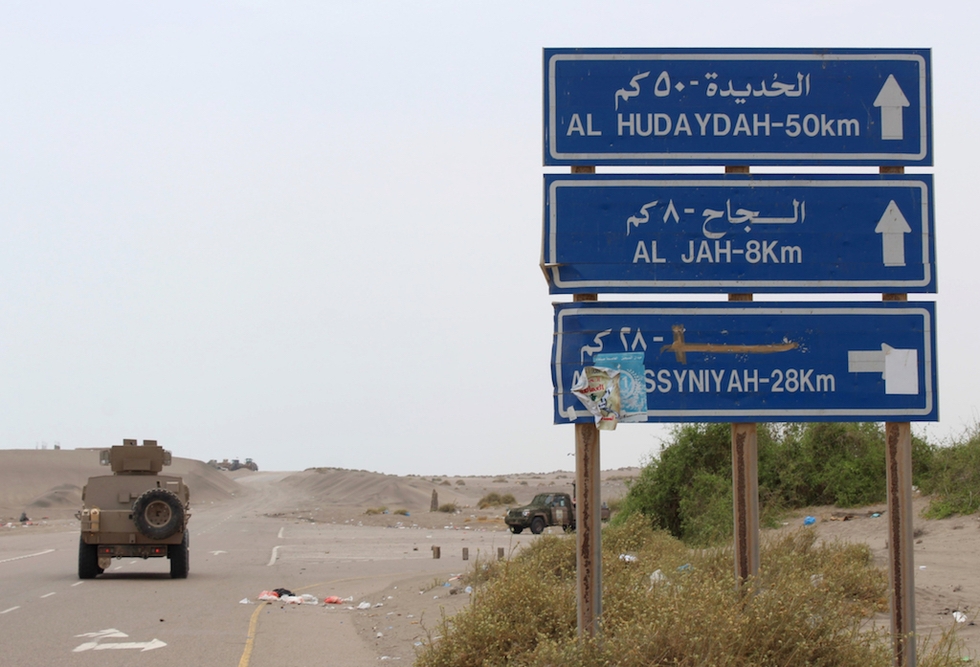
SANAA - Cars fall off mountains, are swept by rainwater into valleys and are targeted by gunfire from armed groups. Nevertheless, passengers insist on making the perilous journeys between Yemen's different provinces.
The main roads that connect Houthi-controlled areas to those controlled by forces loyal to exiled President Abd Rabbuh Mansour Hadi have become conflict zones. In several provinces, all of the connecting roads have been closed, forcing passengers to go through mountains and valleys to travel between provinces.
Passengers face many risks travelling these routes, knowing how commonplace lethal accidents can be, but they feel they have no other choice.
Mohammed al-Qadasi, 38, a resident of Sanaa, visits his family in Taiz every two months and has seen several accidents along the dangerous route to the southern city. But this has not stopped him visiting his family.
I used to travel from Taiz city to al-Hawban area in fifteen minutes and now it takes more than four hours through valleys and mountains.
- Mohammed al-Qadasi, Sanaa
"I used to travel from Taiz city to al-Hawban area in fifteen minutes and now it takes more than four hours through valleys and mountains. This costs so much and the worst problem is that we cannot guarantee the [safety of the] journey," he told Middle East Eye.
"I saw some cars fallen from mountains and passengers killed and injured. I heard about others swept by rainwater and others who were targeted by warring sides, but I cannot stop visiting my family," he explained.
A Saudi-led coalition air strike in Hodeidah killed nine people last week after it struck a bus full of displaced people fleeing the war-torn city towards Taiz, but this accident has not stopped the flow of passengers.
The journey from Qadasi's neighbourhood in Taiz city to al-Hawban area used to cost YR100 ($0.40) before the war but now costs YR3,000 ($6.20).
Qadasi works as a warehouse assistant manager and is paid YR50,000 ($103) per month - hardly enough for him to eke out a living for himself and his family back in Taiz, nor to rent a house in Sanaaa to bring his family there.
"I hope to bring my family to live with me in Sanaa but I cannot rent a house, so I travel each two months to visit them in Taiz," he said.
Heavy toll
For healthy, strong adults like Qadasi, the journey is not very difficult, but it takes a higher toll on children, the sick and elderly who must bear the rough road.
Hani Awadh, 43, is originally from Lahj province, but lives with his wife and two children in Sanaa for work purposes.
"My parents and brothers and also my wife's parents and relatives live in Lahj, so we cannot spend more than six months without visiting them," Awadh told MEE.
"I have a small car but I cannot drive it through mountains and valleys to arrive in Lahj, so I travel by hire cars or buses."
He explained that his children and wife suffered greatly from the bad road and the sounds of clashes.
"The rough road itself is difficult, but sometimes clashes break out in the main road, so people are afraid of the sounds," he said.
Most people travel between provinces to visit their families and some of them travel for trading as they transport items among provinces.
Patients in Houthi-controlled areas who want to travel abroad have to go through the dirt roads, as there are no functioning airports in the Houthi areas, forcing them to travel to Aden or Hadhramout provinces instead.
Saleh Mabkhout, in his 50s, suffers from prostate cancer and needs to travel to receive treatment in Egypt.
"Some patients can withstand the rough road, but the doctor told me that I can't as I am not strong enough," he told MEE.
"So I surrendered to this bad fact and stayed at home."
Risk of detention
When passengers arrive at the checkpoints between the Houthi and pro-Hadi areas, the fighters manning the checkpoints on both sides check the ID cards of the passengers, inspecting their bags, while Houthis arrest anyone they deem suspicious or those who do not provide justification for their travel between the areas of conflict.
Recently, many fighters fled Houthi areas and joined pro-Hadi forces to fight against Houthis in al-Hodeidah and other fronts, increasing paranoia among the Houthis and leading to the arrest of hundreds of passengers in the past month.
While Houthi fighters were investigating passengers at a checkpoint near al-Hawban, MEE asked a Houthi fighter indirectly about the reasons for the intensive procedures on passengers. He said they had been looking for "mercenaries".
"During this month we arrested hundreds of mercenaries at one checkpoint alone - they were trying to flee towards the forces of aggression," he told MEE.
The International community talks about several issues in Yemen but they avoid talking about opening the main roads in several provinces or they do not take serious steps towards this issue
- Mohammed al-Qadasi, Sanaa resident
"We take the suspected people to the police station in al-Hawban and there they are subject to an intensive investigation and we release the innocent ones."
Recently, many people in the Houthi-controlled areas have fled to join the battles against the Houthis in Hodeidah and other areas for the sake of money.
The Houthi checkpoint guard said that they did not arrest people who belonged to the areas under the control of pro-Hadi forces, nor did they arrest people who were travelling with their families.
However, Sameer al-Dobaie, a cousin of a detainee in a Houthi prison in al-Hawban, told MEE that the Houthis arrested his cousin while he was coming back from Sanaa to Taiz.
"My cousin works as a tailor in Sanaa and he does not support any side, but the Houthis arrested him two weeks ago because he didn't have an ID card," he said.
"The investigations are still ongoing and I hope that the Houthis release my cousin, who was travelling to visit his family in Taiz."
Aseel Abdullah, a social activist in Taiz, said that civilians were always the first victims of wars around the world, pointing out that the closure of main roads aggravates their lives.
"The right of movement between provinces is one of the basic rights of residents, but in Yemen this has become a dream for many people," he said.
"Before the war, people used to travel to spend holidays in other provinces but today they travel only for necessities."
He stated that war kills people in different ways and the closure of the roads was one of those ways.
Qadasi said he hoped that the warring sides reached an agreement to open the main road.
He also appealed to the international community to take the issue of blocked roads into consideration.
"The International community talks about several issues in Yemen but they avoid talking about opening the main roads in several provinces or they do not take serious steps towards this issue," he said.
New MEE newsletter: Jerusalem Dispatch
Sign up to get the latest insights and analysis on Israel-Palestine, alongside Turkey Unpacked and other MEE newsletters
Middle East Eye delivers independent and unrivalled coverage and analysis of the Middle East, North Africa and beyond. To learn more about republishing this content and the associated fees, please fill out this form. More about MEE can be found here.


